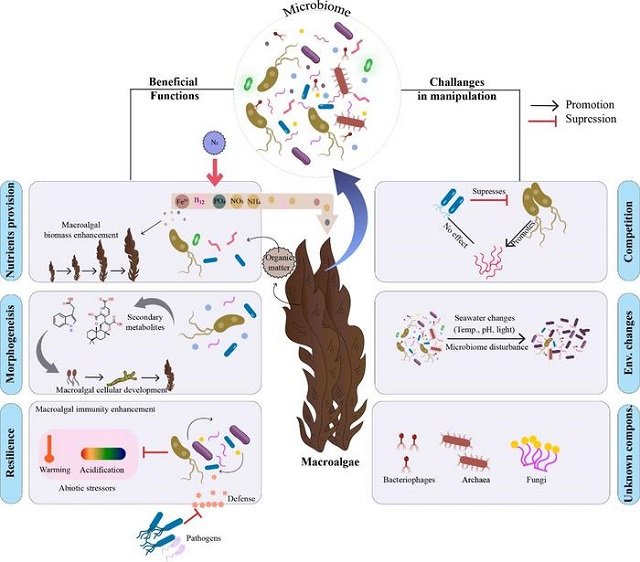New Zealand.- Cawthron Institute, in collaboration with researchers from the University of Waikato and leading Australian macroalgal scientist, Professor Rocky de Nys, is researching whether a native red seaweed (Asparagopsis armata) could be a game changer for the agricultural sector.
The seaweed, Asparagospis armata, has already been proven in trials overseas to reduce greenhouse gas emissions in livestock by up to 80 percent.
The research carried out in Australia has shown that the seaweed, once harvested and dried, can be used as supplementary feed for livestock, and estimates that if just 10 per cent of global ruminant producers used Asparagopsis as an additive to feed, it would have the same impact for our climate as removing 50 million cars from the world’s roads.
The next phase of research is to develop an early proof of concept of the aquaculture production systems needed to develop Asparagopsis at scale.
“We are excited to offer our aquaculture expertise as part of this collaborative research effort. This type of seaweed is native in New Zealand, but there is not enough of it to meet the potential demand from farmers which could be thousands of tonnes each year. Part of our job is to work out how this could be grown at mass scale in order to meet demand both domestically and globally,” says Prof. Charles Eason, Chief Executive of Cawthron Institute.
“This research project firmly aligns with our aim of using our independent scientific research to help protect our environment and support the development of sustainable industries”.
This project will build on Cawthron’s world-leading algae research, and Asparagopsis is just one of a number of seaweeds and algae that have high-value potential for New Zealand.
“Micro and macro algae (seaweed) are an area of global growing interest due to their unique properties. We already work with a range of commercial partners to optimise the growth of healthy algae strains for successful aquaculture and increasingly to identify algal species, like Asparagopsis, with the potential to produce high-value products.
Stay Always Informed
Join our communities to instantly receive the most important news, reports, and analysis from the aquaculture industry.
“Aquaculture is a young industry with enormous potential for this country, not only in the field of algae, but also open ocean farming. Our hope is that our research will enable our industry partners to reach the government’s target of aquaculture being a $3bn industry by 2035,” said Prof. Eason.
Cawthron Institute is receiving $100,000 from the Government’s Sustainable Food & Fibre Futures fund through the Ministry for Primary Industries (MPI) for the Asparagopsis research, over the one-year life of the project. Cawthron is contributing $150,000.
The announcement of the funding was made by Prime Minister Jacinda Ardern and Minister of Agriculture Damien O’Connor during a visit to the Cawthron Aquaculture Park.
Source: Cawthron Institute
Editor at the digital magazine AquaHoy. He holds a degree in Aquaculture Biology from the National University of Santa (UNS) and a Master’s degree in Science and Innovation Management from the Polytechnic University of Valencia, with postgraduate diplomas in Business Innovation and Innovation Management. He possesses extensive experience in the aquaculture and fisheries sector, having led the Fisheries Innovation Unit of the National Program for Innovation in Fisheries and Aquaculture (PNIPA). He has served as a senior consultant in technology watch, an innovation project formulator and advisor, and a lecturer at UNS. He is a member of the Peruvian College of Biologists and was recognized by the World Aquaculture Society (WAS) in 2016 for his contribution to aquaculture.


